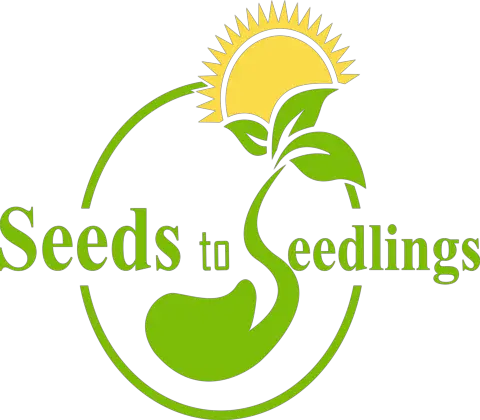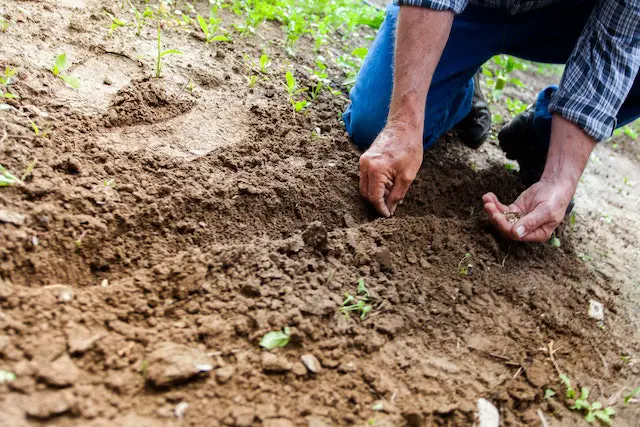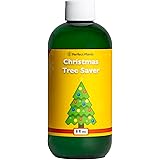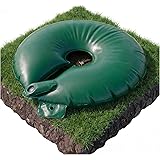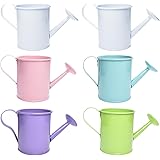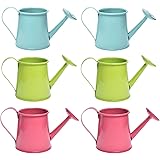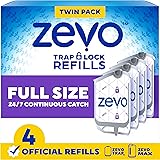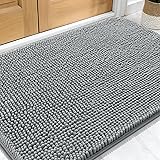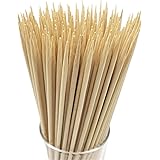Do you want to become a good gardener? From planting the perfect kind of seeds to mastering the art of maintaining a garden, there are several steps you must take to be successful in gardening. ‘How to be a good gardener’ is a comprehensive guide to understanding the basics of gardening and taking it to the next level.
From understanding the ingredients your garden needs for flourishing, to dealing with soil and light conditions, this guide will equip you with all the skills necessary to become a godsend in the world of gardening.
How to be a Good Gardener
It takes some time and effort to turn your backyard into a beautiful garden, but it’s a rewarding experience to see the transformation of your outdoor space. Being a good gardener doesn’t require you to have a degree in horticulture, but you do need an understanding of how the garden works, and what types of maintenance and care are necessary for a garden to flourish. Whether you’re a novice or an experienced gardener, here’s how to maintain a healthy garden that you’ll be proud of.
Study Your Garden’s Needs
Before jumping into gardening, you need to understand your garden and what it needs in order to thrive. Start by researching plants that thrive in your local climate and soil. If you’re not familiar with the soil in your area, you can take a sample to your local garden center or nursery and they can test it for you. This will allow you to select plants that are suitable for your soil type.
You should also take note of the amount of sunlight your yard gets throughout the day, and the direction of the sun. Most plants need full sun for a few hours each day, but some are more tolerant of shade than others. Knowing these details will help you choose the right plants for your yard.
Create a Good Environment
Creating a hospitable environment for your plants is essential to having a great garden. Pulling weeds, tilling soil, adding compost or organic matter, testing the soil’s structure and fertility, and providing adequate irrigation are all important tasks you’ll want to do to ensure that your garden has the best opportunity to be successful.
Weeding is an essential part of caring for your garden, so you’ll want to get into the habit of checking the garden daily to ensure that weeds remain under control. Not only will this ensure that your plants have the maximum amount of nutrients and space they need to thrive, but it will also help prevent the spread of disease.
Tilling your soil is an important part of creating a good environment for your plants. Tilling allows for better aeration as it helps loosen the soil particles and improves the structure of the soil. This allows for better nutrient and water uptake for your plants, and a healthier garden.
Organic matter and compost are also important components of a healthy garden. Composting helps to provide essential nutrients to the plants and helps feed beneficial organisms like earthworms and microorganisms that live in the soil. Adding organic matter to your soil helps to improve its structure and fertility, and can help retain the soil’s moisture.
Irrigation is also an important part of creating an ideal environment for your plants, as it ensures that they are receiving the right amount of water. Overwatering can cause root rot and other diseases, and underwatering can cause plants to wilt and die. You can set up a simple irrigation system for your garden that will help to ensure that your plants are getting the right amount of water.
Know Your Plants
Knowing your plants is essential to keeping your garden healthy and flourishing. Different types of plants require to be treated differently, and knowing the needs of each plant in your garden will help you provide them with the best possible care.
You should research the types of plants you have in your garden and how to best care for them. Knowing what type of pruning, deadheading, fertilizing, and pest control your plants need will help you ensure that they flourish.
You should also be aware of the type of pests that can affect your garden and the best way to combat them. Many garden pests can be kept at bay by using natural methods. Additionally, monitoring your garden on a regular basis will help you spot the signs of pests early and take action before they cause too much damage.
Keep Your Garden Neat and Organized
To ensure that your garden looks beautiful and is easy to maintain, you should keep it neat and organized. This means pruning or deadheading plants that need it, and trimming plants that are getting too tall or spreading too widely. Maintaining these tasks will help keep your garden looking neat and will also encourage healthier growth and more blooms.
Organic mulch is also helpful for keeping your garden neat and tidy. Mulch helps to protect the soil from eroding and will help to suppress weed growth. Plus, it’s aesthetically pleasing and will help to make your garden look neat and well-maintained.
Select the Right Garden Tool
The right garden tools make all the difference when it comes to gardening. Having the right tools for the job will make your gardening tasks more efficient and enjoyable. Investing in quality tools will help to ensure that your garden remains healthy and looking its best.
When selecting garden tools, look for ones that are made with high-quality materials and are comfortable to use, as the last thing you want is for your hands to become sore after a few minutes of gardening. There is no need to invest in expensive tools, but look for ones that are durable and well-made.
Protect Your Garden from Inclement Weather
Inclement weather can wreak havoc on your garden, so it’s important to protect it from the elements. This includes providing adequate shade when the temperatures soar or providing temporary shelter if you live in an area with frequent storms or high winds.
You can use garden umbrellas, canopies and awnings to provide partial shade, or you can use movable plants such as container plants or hanging baskets to provide temporary shelter. Additionally, you can install temporary or permanent windbreaks to help protect your plants from strong winds.
Have Fun!
At the end of the day, gardening is meant to be a fun and rewarding experience. Don’t forget to enjoy the process and take the time to stop and appreciate your garden’s beauty. Gardening can be a great way to spend some quality time outdoors and the reward of seeing your plants thrive is incredibly satisfying.
FAQs on Being a Good Gardener
In order to be a good gardener, it is important to have the right tools for the job. Common gardening tools you’ll need include pruning shears, a rake, a hand trowel, a spray bottle, a wheelbarrow, and gloves. Other tools, such as a hoe, a shovel, a garden hose, or a pruning saw, may also be useful depending on the size and scope of the garden.
When gardening, it is important to choose the right types of plants for the region you’re gardening in. Consider the climate and the amount of seasonal sunlight you will receive. Plants that require full sun should be planted in the parts of the garden that get at least 6-8 hours of direct sunlight daily. Additionally, be aware of any soil conditions particular to your region. Different types of plants require different soil types, nutrients, and pH levels.
How often and how much a garden should be watered depends on the climate, the size of the garden, the types of plants growing, and the particular soil type. Generally speaking, gardeners should water their plants at least once a week. Water deep enough to reach the roots and be sure that the soil is moist but not overly saturated.
Pruning should be done when plants have become overgrown or when they’ve become diseased. Pruning encourages new growth and helps keep the garden looking tidy. Prune your plants at the start of the growing season, before new growth begins, and then prune again in the late summer or early fall to keep them in shape.
Gardens can be subject to numerous types of pests, from common garden bugs such as mites and aphids to larger pests like mice and rabbits. To combat pests, practice pest control techniques such as encouraging beneficial insects, using natural repellents, and handpicking larger pests.
Weeds can quickly take over a garden if left unchecked. There are several methods for controlling weeds, such as hand picking, using barriers such as mulch or landscape fabric, and using herbicides. Be sure to thoroughly research any herbicide being used to ensure that it won’t harm the plants in your garden.
When plants start to wilt, it can be an indication that they are not receiving enough water, or that they are receiving too much water. Pay close attention to weather conditions and soil moisture and water as needed. In addition, check for signs of disease or pests, and take the appropriate measures to address the issue.
Different plants require different nutrients for healthy growth. Nutrients can come from the soil already present in the garden, or can be added in the form of fertilizer. Check the packaging for fertilizer to determine the exact amounts and types of nutrients needed for the particular plants being grown. Additionally, soil pH tests can reveal what kinds of nutrients are missing or in abundance in the soil.
Wrapping Things Up
To be a good gardener, you must dedicate time to observe the masterful gardeners, practice patience, aim to make your space as natural as possible, and choose the right plants, tools, and soil for your region. With a little bit of dedication and care, you can become the gardener that produces lush, vibrant, flourishing gardens.
Improving your gardening skills requires practice, and must be a priority if you want to be successful. Remain mindful of the amount of time and effort you put into maintenance and the environment your plants will live in. Strive to create a garden that looks lush and inviting, and the effort you put in will yield results.
Gardening is a brilliant outlet for creative energy and provides opportunities to perfect your skills, get outside, and enjoy the rewards of your efforts. With the right knowledge and maintenance approach, your garden will blossom into a thing of beauty that enhances your home.
In conclusion, becoming a good gardener requires discipline, knowledge, and dedication. It’s a rewarding experience that allows you to express and practice your creativity while also being beneficial to nature. Keep these tips in mind and you will be on your way to becoming a great gardener.
Auto Amazon Links: No products found.
VEVOR Tree Watering Bags Slow Release, 4 Pack 16 Gallons Tree Watering Ring, Reusable Refillable Tree Irrigation Ring Water Bags, Heavy Duty Watering System for Shrub Tree Root Drip Irrigation
$29.99 (as of February 15, 2026 01:03 GMT +00:00 - More info- Product prices and availability are accurate as of the date/time indicated and are subject to change. Any price and availability information displayed on [relevant Amazon Site(s), as applicable] at the time of purchase will apply to the purchase of this product.
Perfect Plants Christmas Tree Saver 8oz. | Easy Use Xmas Tree Preserver Food | Have Healthy Green Christmas Trees All Holiday Season
$16.99 (as of February 15, 2026 01:03 GMT +00:00 - More info- Product prices and availability are accurate as of the date/time indicated and are subject to change. Any price and availability information displayed on [relevant Amazon Site(s), as applicable] at the time of purchase will apply to the purchase of this product.
HIRALIY 15 Gallon Tree Watering Bag, 2 Pack Watering Ring, Slow Release 1-5 Days, Deep Root & Automatic Drip Irrigation System, for Multi-Trunk Newly Planted Small Trees and Shrubs
$25.99 (as of February 15, 2026 01:03 GMT +00:00 - More info- Product prices and availability are accurate as of the date/time indicated and are subject to change. Any price and availability information displayed on [relevant Amazon Site(s), as applicable] at the time of purchase will apply to the purchase of this product.
Mini Handmade Decorative Watering Can, Set of 6, Height 2.36 inch, Cute Metal Jug for Hand Crafts,Garden Theme Parties, Home Decor and Accessories of Refrigerator Magnets (Height 2.36 inch)
$17.99 (as of February 15, 2026 01:03 GMT +00:00 - More info- Product prices and availability are accurate as of the date/time indicated and are subject to change. Any price and availability information displayed on [relevant Amazon Site(s), as applicable] at the time of purchase will apply to the purchase of this product.
Mini Decorative Watering Can, Set of 6, Height 1.97 inch, Cute Metal Jug for Hand Crafts,Garden Theme Parties and Home Decor
$8.99 (as of February 15, 2026 01:03 GMT +00:00 - More info- Product prices and availability are accurate as of the date/time indicated and are subject to change. Any price and availability information displayed on [relevant Amazon Site(s), as applicable] at the time of purchase will apply to the purchase of this product.
TERRO Ant Killer Bait Stations T300B - Liquid Bait to Eliminate Ants - Bait System - 12 Count Stations for Effective Indoor Ant Control
$11.97 (as of February 14, 2026 23:13 GMT +00:00 - More info- Product prices and availability are accurate as of the date/time indicated and are subject to change. Any price and availability information displayed on [relevant Amazon Site(s), as applicable] at the time of purchase will apply to the purchase of this product.
Zevo Flying Insect Trap Official Refill Cartridges - Fits Both Zevo Trap & MAX Indoor Fly Trap - Authentic Trap+Lock Technology to Catch Gnats, House & Fruit Flies (4 Official Refill Cartridges)
$14.97 (as of February 14, 2026 23:13 GMT +00:00 - More info- Product prices and availability are accurate as of the date/time indicated and are subject to change. Any price and availability information displayed on [relevant Amazon Site(s), as applicable] at the time of purchase will apply to the purchase of this product.
Wagner's 53002 Farmer's Delight Wild Bird Food with Cherry Flavor, 10-Pound Bag
$12.48 (as of February 14, 2026 23:13 GMT +00:00 - More info- Product prices and availability are accurate as of the date/time indicated and are subject to change. Any price and availability information displayed on [relevant Amazon Site(s), as applicable] at the time of purchase will apply to the purchase of this product.
OLANLY Dog Door Mat for Muddy Paws 30x20, Absorbs Moisture and Dirt, Absorbent Non-Slip Washable Doormat, Quick Dry Chenille Mud Mat for Dogs, Entry Indoor Entryway Carpet for Inside Floor, Grey
$9.49 (as of February 14, 2026 23:13 GMT +00:00 - More info- Product prices and availability are accurate as of the date/time indicated and are subject to change. Any price and availability information displayed on [relevant Amazon Site(s), as applicable] at the time of purchase will apply to the purchase of this product.
HOPELF 6" Natural Bamboo Skewers for BBQ,Appetiser,Fruit,Cocktail,Kabob,Chocolate Fountain,Grilling,Barbecue,Kitchen,Crafting and Party. Φ=4mm, More Size Choices 8"/10"/12"/14"/16"/30"(100 PCS)
$4.98 (as of February 14, 2026 23:13 GMT +00:00 - More info- Product prices and availability are accurate as of the date/time indicated and are subject to change. Any price and availability information displayed on [relevant Amazon Site(s), as applicable] at the time of purchase will apply to the purchase of this product.
